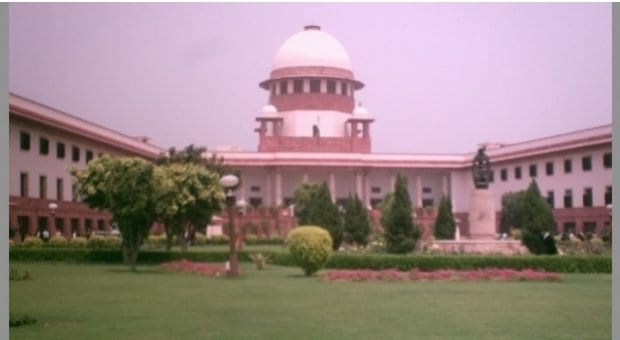A two-judge panel of India’s top court has recognized transgender people as a third gender and has called on government to implement measures to ensure their equal treatment and greater acceptance in wider society.
“Recognition of one’s gender identity lies at the heart of the fundamental right to dignity,” the Supreme Court’s ruling states. “Gender . . . constitutes the core of one’s sense of being as well as an integral part of a person’s identity. Legal recognition of gender identity is, therefore, part of right to dignity and freedom guaranteed under our Constitution,” it further states.
Transgender activist Laxmi Narayan Tripathi, one of the petitioners, told the BBC that “for the first time I feel very proud to be an Indian.”
The ruling calls for “hijras, eunuchs, apart from binary gender, [to] be treated as ‘third gender’ for the purpose of safeguarding their rights.” It also upholds transgender people’s right to “decide their self-identified gender” and directs government to legally recognize their gender identity, such as male, female or a third gender.
The judges also instructed government to implement policies that would lead to trangender people’s socioeconomic well-being, including access to school and job placements, and to address issues of social stigma, fear, shame, gender dysphoria and other challenges.
“Centre and State Governments should take steps to create public awareness so that TGs will feel that they are also part and parcel of social life and not treated as untouchables,” the ruling states. “Centre and the State Governments should also take measures to regain their respect and place in the society which once they enjoyed in our cultural and social life.”
In their ruling, the judges noted the greater acceptance and prominence transgender people, or hijras, used to enjoy in Indian culture, a status that was eroded with the passage of the 1871 Criminal Tribes Act during British colonial rule that deemed the entire community “criminal.”
While the law was repealed at the end of the 1940s, the community continues to be marginalized and abused, Geeta Pandey, of the BBC News in Delhi, writes.
“Seldom, our society realizes or cares to realize the trauma, agony and pain which the members of Transgender community undergo, nor appreciates the innate feelings of the members of the Transgender community, especially of those whose mind and body disown their biological sex,” the judges note. “Our society often ridicules and abuses the Transgender community, and in public places like railway stations, bus stands, schools, workplaces, malls, theatres, hospitals, they are sidelined and treated as untouchables, forgetting the fact that the moral failure lies in the society’s unwillingness to contain or embrace different gender identities and expressions, a mindset which we have to change.”
The top court’s ruling follows its December decision to recriminalize gay sex, when it set aside a 2009 Delhi high-court decision that struck down Section 377, with many in India and abroad characterizing it as a significant setback for human rights in the country.
In its Dec 11 ruling, the court said that only the country’s parliament could change the colonial-era law, widely known as Section 377, which prohibits “carnal intercourse against the order of nature.”
The court agreed April 3 to consider a curative petition challenging its ruling, with legal advocates calling for an open court hearing of the case.


 Why you can trust Xtra
Why you can trust Xtra


